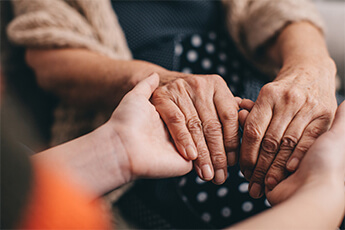What is psychotherapy?


Mental health problems are among the most common health conditions affecting Americans. The Centers for Disease Control and Prevention (CDC) estimates that up to half of Americans will receive a mental disorder diagnosis at some point in their lives. This year, approximately 1 in 5 Americans will experience depression, anxiety, or another type of mental disorder. And 1 in 25 people lives with a serious type of mental disorder like schizophrenia or a different psychotic disorder.
Psychiatrists (doctors who specialize in mental health) often prescribe medications to treat these problems. But psychotherapy also helps. Also known as talk therapy, psychotherapy involves talking with a trained professional about your feelings, thoughts, and behaviors, so you can better understand them. You also learn skills to help you cope with issues currently affecting your life, as well as strategies to help you better manage future challenges.
From the community: “In the past 2yrs. I have gone through divorce, My Dad passing, job loss, new job, working from home, living alone. Covid. I feel loneliness. And have anxiety about my job. I work remote and there are days where there is nothing to do. And I feel isolated. And now the thought of ever going back to an office gives me anxiety too. And where I currently reside and I am not from. I try to exercise, meditate, on medication (effexor) I feel like I am battling everyday. I am in the process of getting counseling. I want to try EMDR. I don't know what else to do.” – Inspire member
Who needs psychotherapy?
Psychotherapy can help anyone. It’s not just for people with diagnosed mental disorders. It’s especially helpful during periods of intense emotional stress. For instance, psychotherapy can help you cope with:
divorce
family issues
health crisis
job loss
loss of a loved one
mental disorders
relationship problems or sexual problems
stress
substance abuse
trauma or abuse
What professionals offer psychotherapy?
Many mental health professionals offer psychotherapy, including:
psychiatrists and psychiatric nurse practitioners
psychologists
social workers
family counselors
marriage counselors
pastoral counselors
professional clinical counselors
What takes place during psychotherapy?
During psychotherapy, your therapist provides a safe, supportive environment that allows you to open up about your thoughts and emotions. As you talk through how you’re feeling, your therapist serves as an objective, nonjudgmental sounding board.
Psychotherapy is a joint effort between you and your therapist. Working together, you learn to identify and change behavior patterns and thoughts that have a negative impact on your life or those you love.
Depending on the reason for the therapy, sessions may include just the two of you. Or you may have relationship counseling with a loved one or family counseling with multiple family members. Support groups are also a form of psychotherapy.
What are the benefits of psychotherapy?
Research suggests that 3 out of 4 people who participate in psychotherapy see improvements and are able to function better. Studies also show that psychotherapy can bring about positive brain changes similar to what’s seen for those who take medications for mental disorders.
What are the types of psychotherapy?
There are different types of psychotherapy. The type you receive depends on your unique circumstances and needs. Therapists sometimes combine psychotherapy approaches to get you the best results.
Types of psychotherapy include:
cognitive behavior therapy (CBT)
dialectical behavior therapy (DBT)
exposure therapy
eye movement desensitization and reprocessing (EMDR) therapy
interpersonal therapy
psychodynamic therapy
Cognitive behavior therapy (CBT)
CBT focuses on identifying and changing negative or false beliefs. As you and your therapist talk, the two of you can uncover how your thoughts, feelings, and behaviors influence each other. This helps you understand unhealthy patterns that can lead to self-destructive behaviors.
CBT can be extremely helpful if you experience:
anxiety
depression
eating disorders
schizophrenia
From the community: “I went through several DBT programs. Not because it didn’t work, it was because it’s good to refresh and strengthen what you know and to learn any new skills that DBT may have updated. It takes time for the skills to come naturally and you may find that a lot of them you were using already, but couldn’t put a name to them until now. It’s good to enhance those through DBT. Good luck on your journey!” – Inspire member
Dialectical behavior therapy (DBT)
Therapists often use DBT (a form of CBT) to help those experiencing chronic suicidal thoughts or people with borderline personality disorder (BPD). The goal of DBT is to help you accept uncomfortable thoughts or feelings instead of fighting against them. You learn to better regulate your emotions. DBT can also help those who have eating disorders or post-traumatic stress disorder (PTSD).
Exposure therapy
Therapists use exposure therapy to help people manage phobias, obsessive-compulsive disorder (OCD), and PTSD. You learn techniques to help you cope with triggers (events that bring on symptoms). Then, the therapist gradually exposes you to these triggers so you can practice the strategies in a safe, controlled environment.
From the community: “… It's so easy to isolate and hide from it all and know you have a safe space at home. I was terrified of being in traffic, being on planes, not having control (driving, in places, etc), OCD, being around people I didn't know, not being near a bathroom, etc. One day I got so depressed about it all that I decided I couldn't take it anymore. I was going to fight. I fought hard and it was SOOOO scary that I didn't think I could do it. I also have learned anxiety from seeing my Mom's issues. So, it was like fuel to a fire and it made me fight that much harder. The only real way of freeing yourself from your burden as you stated is to find tools to help you fight thru it. I now am relaxed in traffic, fly all the time, go to big social settings, etc. I do have times where I have severe fight or flight mode. But, I have chosen to fight it and I have a great time. It then will reinforce my thought that I will be okay if I keep fighting. So the more I put myself into those situations the better. You may not feel that way... but it will. Having a great therapist to give you tools to help you conquer the fears is very helpful. Just know - there is a way out if you want out. But, you'll have to really push yourself waaaaaaaaaay out of your comfort zone. I have faith that you can do it. .” – Inspire member
Eye movement desensitization and reprocessing (EMDR) therapy
EMDR eases emotional distress felt by those who have PTSD. You participate in repetitive eye movement exercises (or finger-tapping exercises) while recalling a traumatic event. The therapy helps you replace emotionally charged reactions with positive ones.
Interpersonal therapy
Interpersonal therapy focuses on improving your ability to communicate and have a good relationship with others. You learn to identify negative behaviors like aggression or isolation while learning how to positively interact with others.
Interpersonal therapy can help with:
depression
grief
relationship problems
socialization
workplace issues
Psychodynamic therapy
This therapy helps you identify past negative experiences or inappropriate, repetitive thoughts that occur without you being aware of them. Your therapist asks open-ended questions to help you identify unconscious thoughts, unresolved feelings, or unhelpful behaviors. Once you are aware of these old patterns, you learn how to change them.
Therapists use psychodynamic therapy to treat:
anxiety disorders
borderline personality disorder
depression
Sources
What is psychotherapy? American Psychiatric Association. January 2019.
Understanding psychotherapy and how it works. American Psychological Association. July 2020.
What is the difference between psychologists, psychiatrists, and social workers? American Psychological Association. July 2017.
About mental health. Centers for Disease Control and Prevention. June 2021.
Psychotherapy. Mayo Clinic. March 2016.
Psychotherapy. National Alliance on Mental Illness.
Psychotherapies. National Institute of Mental Health. June 2021.
Disclaimer
Member comments are lightly edited for length and to remove identifying information but are otherwise reproduced as they appear in the community as part of public posts.
This content is for general informational purposes only and does not necessarily reflect the views and opinions of any organization or individual. The content should not be used as a substitute for professional medical advice, diagnosis, or treatment. Please consult your healthcare provider about any questions you may have regarding a medical condition.




